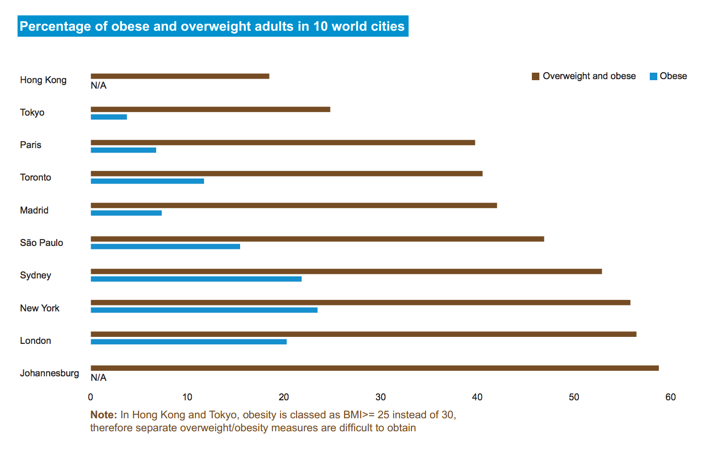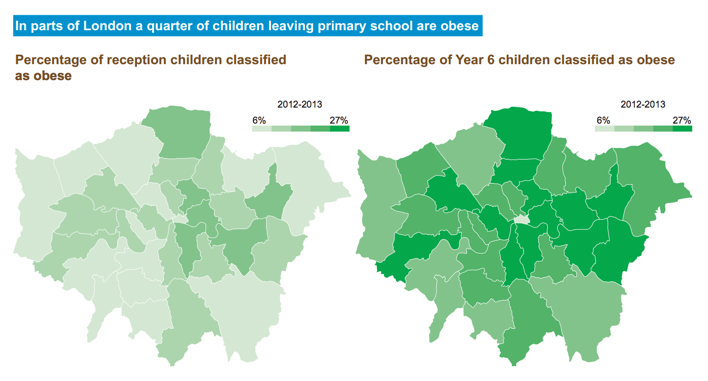
It is no exaggeration to say London is facing an obesity emergency. More than half of the entire adult population in London is overweight or clinically obese – some 3.8 million people. This shocking statistic is borne out by comparison with other world cities – London now has more overweight and obese people than New York, Sydney, São Paulo, Madrid, Toronto or Paris.
Although London performs well relative to the rest of England, with the lowest levels of obese and overweight adults of all the regions, there is a wide variation of overweight and obese adults between boroughs where rates in some boroughs are 1.5 times greater than in others.
Obesity impairs lives. It raises the risk of serious physical health conditions such as diabetes, heart disease, stroke, and cancer. It drains energy during the day and causes sleeplessness at night. It affects our mental health too – our sense of self-esteem and happiness – and can stop us from leading the lives that we want and fulfilling our dreams for ourselves and our families. Other global cities are taking action. New York has introduced compulsory calorie counts on restaurant menus, restricted the use of trans-fats, and launched a media campaign on sugar sweetened drinks. Paris has promoted locally produced food, introduced a food aid programme for those in poverty, and focused significant efforts on education. Tokyo, similarly, has had a strong focus on better food and nutrition education, whilst Hong Kong has a programme to promote healthy eating in schools, and healthy meals in restaurants. Toronto has set up mobile Good Food trucks and launched the Good Food Box, a community-led non-profit initiative for fruit and vegetable distribution.
Helping Londoners to make better food choices
The number one thing people want is more information and awareness. That comes down to clear, simple, comprehensible labelling of food and drink. New York, for example, requires all chain restaurants and cafes (with 15 or more units) to display calories for every item on all menu boards and menus, in a font and format that is at least as prominent as price.

Protecting London’s children from junk food
Being exposed to more food also means we eat more. Having a takeaway near our house, commuter route, or workplace increases the amount of takeaway food we eat. This exposure is a particular concern for schools, since a quarter of the energy intake of young people is from eating snacks bought close to school. Having a fast food outlet within 160 metres of a school is associated with a 5% increase in obesity.
There are over 8,000 fast food outlets in London, many close to schools, and this number is increasing by 10% every year. A single typical fast food meal contains nearly 60% of recommended daily calories, half of recommended salt and saturated fat, and no portions of fruit and vegetables.